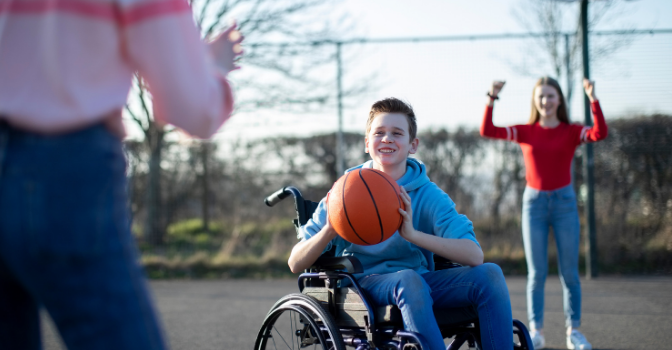Whether you enjoy live music concerts, want to play sports or are thinking of learning to paint – hobbies and interests are an opportunity to get active, make friends and learn new skills.
Here at Leap in! HQ, we are regularly asked questions about what the NDIS will pay for when it comes to social and recreational activities. Can you join a club? Will the NDIS pay for sporting equipment? How about piano lessons?
Today we’re taking a look at what you can and can’t pay for with your NDIS funds so you can plan your next activity with confidence.
About social and recreation supports.
Social and recreational activities are those that get you out in the community, either on your own or with other people.
They may include things such as:
- Sports like tennis or basketball
- Learning new skills such as playing an instrument, woodworking or photography
- Relaxation classes like tai chi, meditation or yoga
- Going out to a concert, the theatre or movies
- Visiting friends or family
- Going to shops, art galleries, museums or exhibitions.
Supports the NDIS may fund.
The NDIS may fund additional help or supports that you need to participate in an activity because of your disability.
These include:
- Specialised equipment or modification to equipment
- Help to build skills to take part in social and recreation activities
- A support worker to help you participate in activities, such as help to get started, setting you up for activities or ongoing support
- Help to travel to a recreation event when you can’t use public transport and it’s not reasonable for family or friends to take you. [1]
As always, the “reasonable and necessary” test applies. NDIS funds can only be spent on supports that help you to reach your goals, are necessary because of your disability, offer value for money and are likely to be beneficial for you.
What the NDIS generally won’t fund.
The NDIS will not generally fund the cost of the activity itself. That’s because other people have to pay these costs as well.
It won’t fund:
- The cost of activities that everyone else pays for like entry fees, tickets, boat hire, uniforms and membership fees
- Standard equipment you need to participate like sporting equipment
- Participation in activities at a professional or elite level
- Support for a child to participate where parents would normally be expected to stay and support their child. [2]
Supports from family and friends.
The NDIS will consider reasonable supports that family and friends provide when funding social and recreation supports.
For children, the NDIS will consider:
- If a child needs extra support because of their disability compared to other children the same age
- If parents would usually be expected to take their child to the activity
- If the support helps to build capacity.
For adults, the NDIS will consider:
- How much extra help is needed and what type
- If the activity is something an adult would usually do without assistance
- Whether support will help an adult to become more or less independent.
Good to know.
- Social and recreational supports will be included in an NDIS Plan if you have a related goal
- They are part of the Core budget category in your NDIS Plan so can be used flexibly to get the help you need
- The NDIS may also fund assistive technology to help you to participate in activities. This funding will appear in your Capital Supports budget category.
Leap in! can help.
Get specialist advice from our dedicated team, experienced in helping people of all ages get the most out of their NDIS Plans.
To find out more, call us on 1300 05 78 78, visit our website (online chat available) or email crew@leapin.com.au
Further reading
Assistance with Social and Community Participation.

